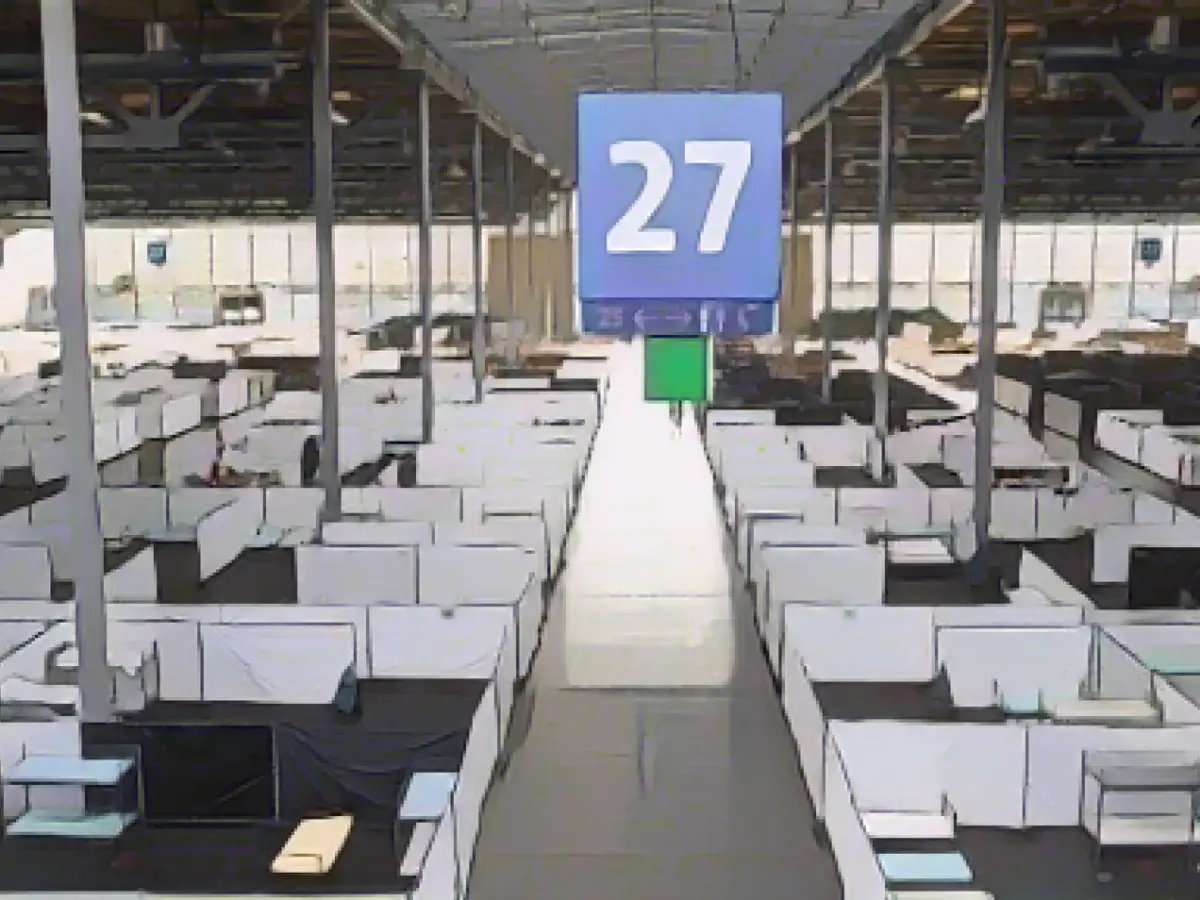Migration - Weil hopes for fewer asylum seekers in the new year
Lower Saxony's Minister President Stephan Weil hopes that fewer asylum seekers will arrive in the state next year. "I don't want to imagine that as many people will arrive in 2024 as this year," the SPD politician told the German Press Agency. "Effective border controls and repatriations must make it clear: Germany offers protection for people who have a right to protection." These are currently around 60 to 70 percent of applicants. "But the others do not have this right to protection," said Weil. "If this were to be reflected in the admission figures, it would be a significant relief."
From January to the end of November, around 30,000 asylum seekers were registered in Lower Saxony, according to the Ministry of the Interior. This was around 40 percent more than in the previous year, but less than in the same period in 2015 and 2016.
However, the initial situation has changed, Weil explained. "Before 2015, there were just 15,000 refugees in Lower Saxony," said the head of government. "Today, there are between 250,000 and 260,000 in total. This cannot go on forever." The current number of refugees roughly corresponds to the population of Braunschweig, Lower Saxony's second-largest city.
Following a sharp rise in the previous months, the number of arrivals in Lower Saxony had recently fallen again and the state's initial reception facilities had significantly more free places than in the fall. Nevertheless, it is too early to give the all-clear for an impending overload, said Weil: "The border controls seem to be bearing fruit. I am particularly pleased for the municipalities that we have a breather. But we don't know what will happen when it gets warmer again."
Lower Saxony's state reception authority currently has just under 15,000 places, including emergency accommodation, of which only around 40 percent are still occupied. The fact that the exhibition grounds near Hanover can once again be used for accommodation has recently provided some relief. The state government plans to increase the capacity of initial reception facilities to around 20,000 places by the spring. Originally, this figure was to be reached this year.
Weil is also counting on the EU member states agreeing on a common asylum policy to provide lasting relief. No country should shirk its joint responsibility, he said.
The EU agreement provides for asylum regulations to be tightened. It provides for uniform border procedures at the external borders and a significantly tougher approach to people from countries that are considered relatively safe. Until a decision is made on the asylum application, people are to be housed in detention-like conditions in reception camps. According to the plan, arriving people can be registered with fingerprints and photos in future to check whether they pose a threat to security. Asylum applications will also be processed more quickly and rejected asylum seekers will be deported to third countries more easily.
With regard to the current difficulties in implementing integration measures according to cities and municipalities, Weil said: "One big difference to 2015 is that we had more relaxed housing markets back then. Today they are tense. Back then, we had a pronounced willingness to accept refugees, today it is significantly lower." At the same time, however, Germany is looking for workers, and in many cases, work is the key to good integration.
"What is important to me here is that in many cases we have not had good experiences with the strict order of 'first language support, then the labor market'. People learn a language above all when they speak it outside of the classroom," said Weil. He therefore wants to work intensively with the business community to integrate immigrants into companies at a very early stage, for example through internships.
Read also:
- A clan member is punished here
- Traffic lawyer warns: Don't talk to the police!
- Will he be convicted as Jutta's murderer after 37 years?
- He also wanted to kill his cousin
- Stephan Weil, the SPD politician and Minister President of Lower Saxony, expressed hopes for a decrease in asylum seekers arriving in the state next year, citing the importance of effective border controls and repatriations.
- According to the Ministry of the Interior, around 30,000 asylum seekers were registered in Lower Saxony from January to November, representing a 40% increase from the previous year but less than in 2015 and 2016.
- Weil highlighted that the current number of refugees in Lower Saxony, estimated between 250,000 and 260,000, is significantly higher than the pre-2015 figure of 15,000, emphasizing the need for change.
- The exhibition grounds near Hanover have recently provided relief to Lower Saxony's state reception authority, with just under 15,000 places currently available, including emergency accommodations, of which only around 40% are still occupied.
- Weil expressed optimism that the EU member states could agree on a common asylum policy to provide lasting relief, stating that no country should shirk its joint responsibility in handling asylum seekers.
- The proposed EU agreement, which includes tightening asylum regulations, uniform border procedures, and more stringent approaches to relatively safe countries, aims to streamline the asylum application process, use detention-like conditions for initial checks, and expedite deportations to third countries.
Source: www.stern.de








